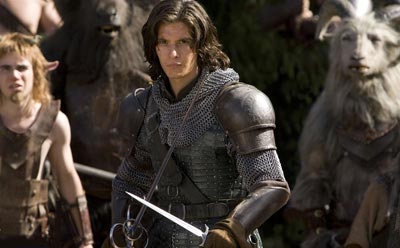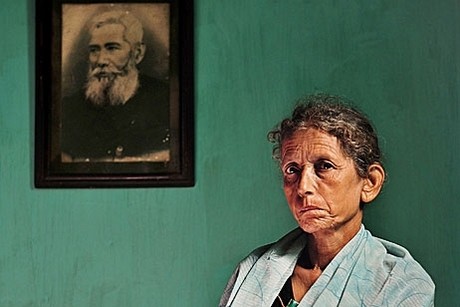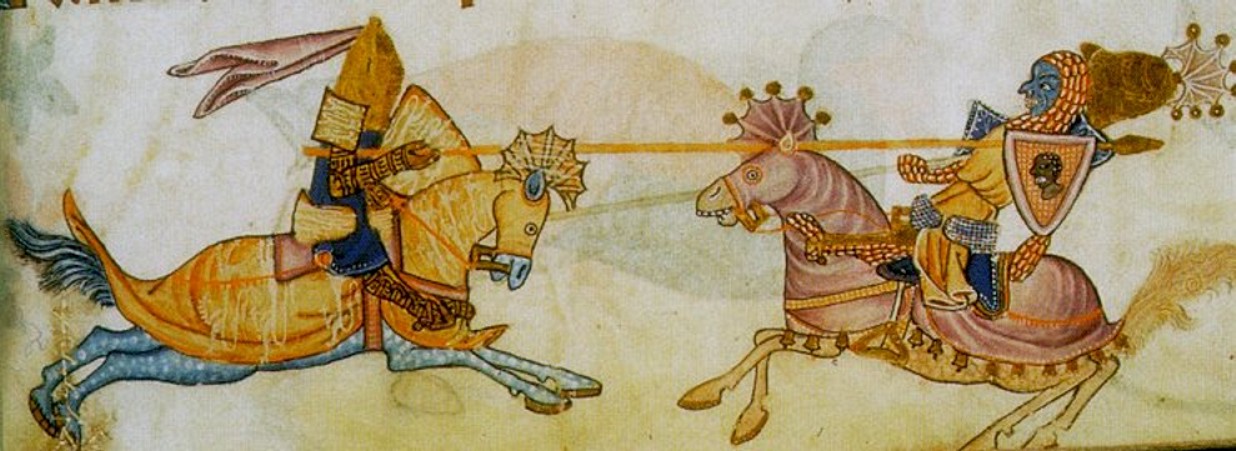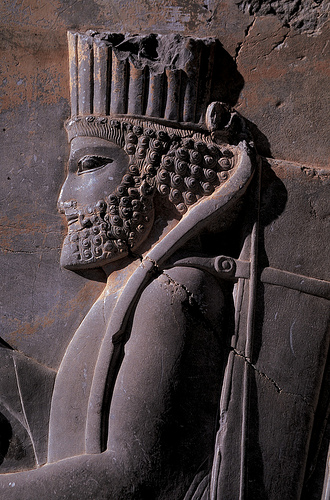- Jan 25, 2009
- 19,765
- 1,428
- Faith
- Oriental Orthodox
- Marital Status
- Private
- Politics
- US-Others
Shalom 
Concerning why I was writing, it's always refreshing to have discussion on things we see in everyday life and so I thought it'd be good to have a discussion on film/media - which is a big deal for many at home.
Earlier in the year, I saw the film "The Hobbit".....
My gosh....like my gosh...
I went into the film wondering if it was going to be more of the same as with Lord of the Rings - which I enjoyed and yet it never really hit home with me...and I only decided to see the film after another highly recommended it. And when I saw "The Hobbit" - my goodness, that movie was simply beautiful...and apart from it almost making me tear up a couple of times, it hit home to the point that I felt the "Lord of the Rings" series was far less impressive. And real themes when it comes to loyalty/rising to the occassion.
The same goes for themes such as not being so focused on your own family/home that you forget others don't have one - and may need help in fighting for theirs so that they can do the things you take comfort in.
One of the most amazing things about the film was the FilmScore. There's one Beautiful song that I can't get out of my mind after seeing the movie, entitled The Misty Mountains [Richard Armitage & The Dwarf Cast] . Very haunting.... but enchanting. The baritone lyrics captured the tragedy, loss, and rootedness of the dwarves better than any dialogue could have. Best theme song I've heard for a film in a long time...
Lyrics:
The Hobbit - An Unexpected Journey: Misty Mountains Song - YouTube
Richard Armitage and the Dwarves are great, and the tune is out of this world, being deep, dark, and majestic and expressing an importance that’s moving. Tolkien would have been proud. The song sells the whole point of the film, setting up the deep meaning the quest holds for Thorin. It’s just so… Dwarvish. This will probably be remembered as the signature song for The Unexpected Journey. The song’s melody is a cornerstone to the Hobbit soundtrack, reappearing throughout.
The scene where they're singing the song literally capitvated me - and reminded me of how Negro Spirituals were sung by Blacks in order to cope with the great loss they experienced - as well as to convey messages for others to remember and never forget what happened, be it in maintaining hope or never losing sight of the tragedy behind what they lost.
The scene itself seemed a pitch-perfect dramatization of Tolkien’s original scene, where the dwarven company and Gandalf the Grey, having thoroughly put out unwilling host Bilbo Baggins with a raucous dinner party, quiet down and begin to sing.
In many ways, I was going back and forth between comparing them either to American Indians, the Armenians (if remembering The Armenian Genocide/all of those kicked out of their homeland ), the Christians in Iraq and Syria forced to flee their homelands ( #10 /#14 & #63 ) in ways similar to what happened in antiquity when it occurred before...or the Hmong (of Laos, who were scattered all over the world after being abandoned by the U.S to the Communists - just like the Dwarves were abandoned by Elves).
Other times, I didn't know if it'd be best to compare them to the Jewish believers who were forced into Diasporas and often kicked out of their homes (more shared here in the thread entitled Kosher Pirates: Hebrews on the high seas ) - and forced to survive as merchants/free lance migranting people ( a notable example being the Sephardic Jews in the Ottoman Empire...as shared in #25 )...acting in the same way that the Dwarves had to live amongst others as people without a permanent home.
In many ways, it reminded me of what occurred with Refugees and other displaced people groups - something I'm very passionate on....and to see the Dwarves/how epic and personal they were got my attention alot. Some people were shocked to see that some of the dwarves were actually pretty good looking (as they did in making Fíli and Kíli being portayed the way they did) and had a rugged yet elegant feel to them. But again, their best trait was how relatable you felt with them.
As another said best (for excerpt):
Concerning why I was writing, it's always refreshing to have discussion on things we see in everyday life and so I thought it'd be good to have a discussion on film/media - which is a big deal for many at home.
Earlier in the year, I saw the film "The Hobbit".....
My gosh....like my gosh...
I went into the film wondering if it was going to be more of the same as with Lord of the Rings - which I enjoyed and yet it never really hit home with me...and I only decided to see the film after another highly recommended it. And when I saw "The Hobbit" - my goodness, that movie was simply beautiful...and apart from it almost making me tear up a couple of times, it hit home to the point that I felt the "Lord of the Rings" series was far less impressive. And real themes when it comes to loyalty/rising to the occassion.
The same goes for themes such as not being so focused on your own family/home that you forget others don't have one - and may need help in fighting for theirs so that they can do the things you take comfort in.
One of the most amazing things about the film was the FilmScore. There's one Beautiful song that I can't get out of my mind after seeing the movie, entitled The Misty Mountains [Richard Armitage & The Dwarf Cast] . Very haunting.... but enchanting. The baritone lyrics captured the tragedy, loss, and rootedness of the dwarves better than any dialogue could have. Best theme song I've heard for a film in a long time...
Lyrics:
Far over the Misty Mountains cold
To dungeons deep, and caverns old
We must away ere break of day
To find our long forgotten gold.
The pines were roaring on the height
The winds were moaning in the night
The fire was red, it flaming spread
The trees like torches, blazed with light
To dungeons deep, and caverns old
We must away ere break of day
To find our long forgotten gold.
The pines were roaring on the height
The winds were moaning in the night
The fire was red, it flaming spread
The trees like torches, blazed with light
Richard Armitage and the Dwarves are great, and the tune is out of this world, being deep, dark, and majestic and expressing an importance that’s moving. Tolkien would have been proud. The song sells the whole point of the film, setting up the deep meaning the quest holds for Thorin. It’s just so… Dwarvish. This will probably be remembered as the signature song for The Unexpected Journey. The song’s melody is a cornerstone to the Hobbit soundtrack, reappearing throughout.
The scene where they're singing the song literally capitvated me - and reminded me of how Negro Spirituals were sung by Blacks in order to cope with the great loss they experienced - as well as to convey messages for others to remember and never forget what happened, be it in maintaining hope or never losing sight of the tragedy behind what they lost.
The scene itself seemed a pitch-perfect dramatization of Tolkien’s original scene, where the dwarven company and Gandalf the Grey, having thoroughly put out unwilling host Bilbo Baggins with a raucous dinner party, quiet down and begin to sing.
They came back with viols as big as themselves, and with Thorin’s harp wrapped in a green cloth. It was a beautiful golden harp, and when Thorin struck it the music began all at once, so sudden and sweet that Bilbo forgot everything else, and was swept away into dark lands under strange moons, far over The Water and very far from his hobbit-hole under The Hill……The dark filled all the room, and the fire died down, and the shadows were lost, and still they played on. And suddenly first one and then another began to sing as they played, deep-throated singing of the dwarves in the deep laces of their ancient homes… As they sang the hobbit felt the love of beautiful things made by hands and by cunning and by magic moving through him, a fierce and a jealous love, the desire of the hearts of dwarves. Then something Tookish woke up inside him, and he wished to go and see the great mountains, and hear the pine-trees and the waterfalls, and explore the caves, and wear a sword instead of a walking-stick. (Tolkien. 43-44.)
A lot of people, amazingly, have been giving it bad reviews - and I was literally shocked by it. Others saying it wasn't as good as the other films - and yet, when I saw it, it made me realize that others looking down upon it had placed more hype on it than necessary and expected to see more of the same with LOTR - instead of enjoying it for what Tolkien intended with a story that's really deep. And as another noted best, The Hobbit is a lot better once you realize it’s a war movie - a film talking about the Rise of the Great Dark you'll see in the Future Triology (technically past with LOTR) and yet seeing real life battles for others who were essentially victims of war/greed - sent into DIaspora and trying to maintain a heritage.
In many ways, I was going back and forth between comparing them either to American Indians, the Armenians (if remembering The Armenian Genocide/all of those kicked out of their homeland ), the Christians in Iraq and Syria forced to flee their homelands ( #10 /#14 & #63 ) in ways similar to what happened in antiquity when it occurred before...or the Hmong (of Laos, who were scattered all over the world after being abandoned by the U.S to the Communists - just like the Dwarves were abandoned by Elves).
Other times, I didn't know if it'd be best to compare them to the Jewish believers who were forced into Diasporas and often kicked out of their homes (more shared here in the thread entitled Kosher Pirates: Hebrews on the high seas ) - and forced to survive as merchants/free lance migranting people ( a notable example being the Sephardic Jews in the Ottoman Empire...as shared in #25 )...acting in the same way that the Dwarves had to live amongst others as people without a permanent home.
In many ways, it reminded me of what occurred with Refugees and other displaced people groups - something I'm very passionate on....and to see the Dwarves/how epic and personal they were got my attention alot. Some people were shocked to see that some of the dwarves were actually pretty good looking (as they did in making Fíli and Kíli being portayed the way they did) and had a rugged yet elegant feel to them. But again, their best trait was how relatable you felt with them.
As another said best (for excerpt):
What makes them so attractive is their innate tragedy, as I wrote:
Best movie of 2013 I've seen thus far...and truly, Dwarves rock and I'm glad they gave them great presentation - even better than that of the elves, as they felt the most relatable of the Middle Earth People..Elves are perfect. Dwarves decidedly imperfect. It seems no contest.
And yet, it’s the imperfections that make them so compelling. Angels are boring; watching people with flaws, who make bad decisions, is where real drama comes in. Dwarves make incredible things — whole cities carved out of the insides of mountains, weapons and crafts of surpassing beauty, mines tunneling deep into the earth with medieval technology. But in true dramatic fashion, it’s their very greatest gifts that prove their downfall. The accumulated wealth from dwarf craftsmanship lures raiders, none deadlier than the great dragons who, like Smaug of “The Hobbit,” pillage dwarf strongholds and seize their treasure. And their deep mines awake fell powers like Moria’s Balrog, which rise up from the depths to wreak havoc. Even in the best case scenario, when the dwarves don’t die, they inevitably turn inward and cut their underground cities off from the rest of the world.
And yet, it’s the imperfections that make them so compelling. Angels are boring; watching people with flaws, who make bad decisions, is where real drama comes in. Dwarves make incredible things — whole cities carved out of the insides of mountains, weapons and crafts of surpassing beauty, mines tunneling deep into the earth with medieval technology. But in true dramatic fashion, it’s their very greatest gifts that prove their downfall. The accumulated wealth from dwarf craftsmanship lures raiders, none deadlier than the great dragons who, like Smaug of “The Hobbit,” pillage dwarf strongholds and seize their treasure. And their deep mines awake fell powers like Moria’s Balrog, which rise up from the depths to wreak havoc. Even in the best case scenario, when the dwarves don’t die, they inevitably turn inward and cut their underground cities off from the rest of the world.
If anyone has seen it - or read the book - I'd be curious to see if you enjoyed the story line ...or felt the film was horrible.
Also, I would be curious as to what you felt in regards to why it seemed that all of the SPECIES in Middle Earth seemed to have the experiences of others in Diaspora today that are ethnic minorities/religious groups - and yet they are all portrayed in European terms. Do you feel that was accidental? Or do you feel it was intentional and an issue of not truly showing what others go through?
To be continued in the next post...
Last edited:


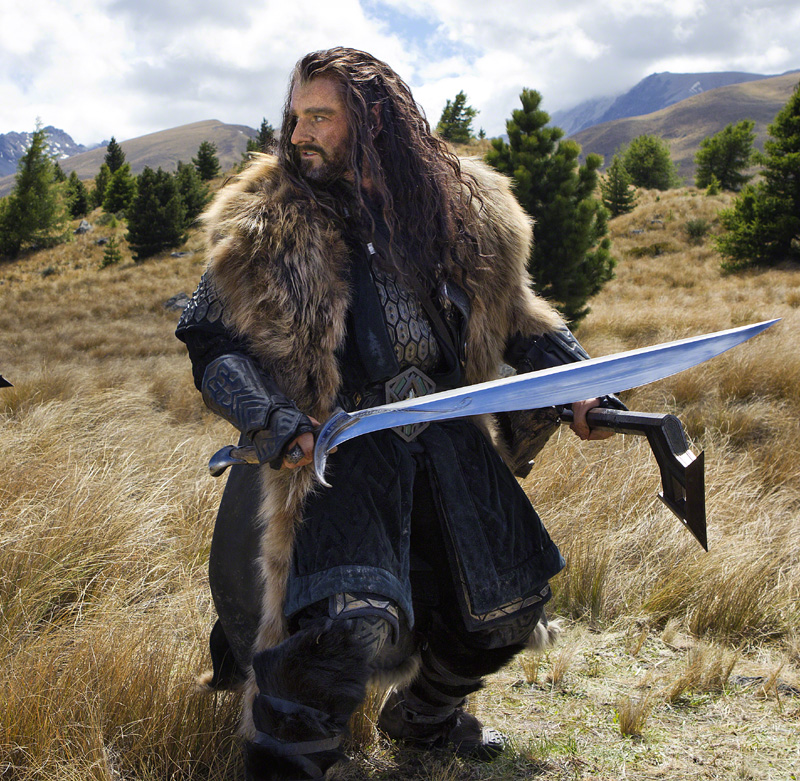

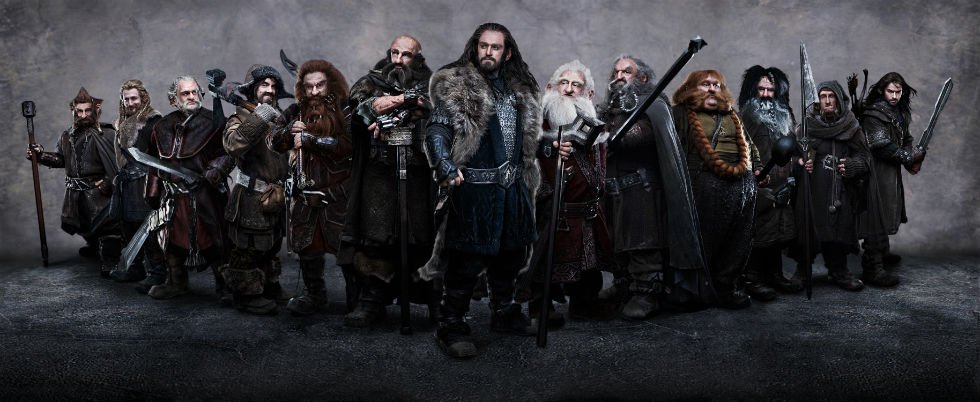



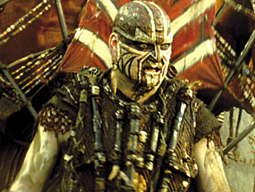
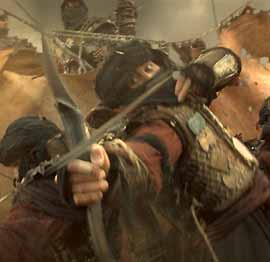
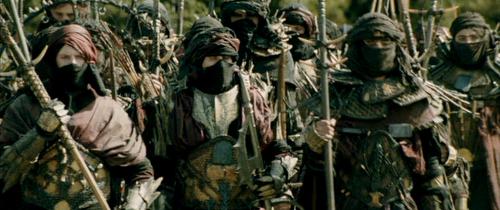
 For some reason, people think that having a Hispanic main character in Tolkien's work would entail a stereotypical view of having poor English/only speaking in Spanish - but that'd not be necessary.
For some reason, people think that having a Hispanic main character in Tolkien's work would entail a stereotypical view of having poor English/only speaking in Spanish - but that'd not be necessary. 